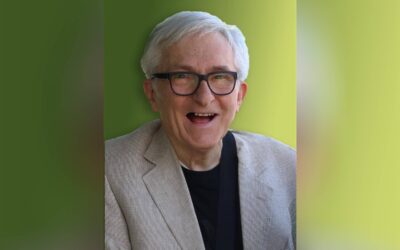 “Truly we are eyewitnesses that the Church has taken up a new path as it follows Jesus in a world that is troubled by so much suffering,” said Francis B. Francis Xavier Kriengsak Kovithanvanij, Archbishop of Bangkok at the opening of the annual fraternal gathering of 50 bishop friends of the Focolare Movement from 4 continents. Following the grand events in Rio the meeting was held at the permanent Mariapolis of the Focolare Movement near San Paulo, Brazil. “There’s someone else at work, the Holy Spirit who constantly calls the Church to reform itself,” observed theologian Hubertus Blaumeiser. This is the constant appeal of Pope Francis.
“Truly we are eyewitnesses that the Church has taken up a new path as it follows Jesus in a world that is troubled by so much suffering,” said Francis B. Francis Xavier Kriengsak Kovithanvanij, Archbishop of Bangkok at the opening of the annual fraternal gathering of 50 bishop friends of the Focolare Movement from 4 continents. Following the grand events in Rio the meeting was held at the permanent Mariapolis of the Focolare Movement near San Paulo, Brazil. “There’s someone else at work, the Holy Spirit who constantly calls the Church to reform itself,” observed theologian Hubertus Blaumeiser. This is the constant appeal of Pope Francis.
How does the experience of the bishops enter into this “novelty”? Brendan Leahy, the newly elected Bishop of Limerick, Ireland commented: “At the school of a charism – which is a gift of the Holy Spirit – we must let ourselves be shaped so that, above all, we ourselves can be reformed in our very being; and not only at the level of the individual but also in the communal life among us. Reform always begins from a new experience of God. By living in the light of this charism we have an experience of God that is then communicated beyond us, in all relationships.”
This was the source of the effective and affective collegiality that was lived out with particular intensity during those 10  days together. One expression of that mutual love was the rich exchange of experiences of the practice of the Gospel in daily life and its effect in their pastoral mission.
days together. One expression of that mutual love was the rich exchange of experiences of the practice of the Gospel in daily life and its effect in their pastoral mission.
“I realized that above all I must create a relationship of love with the people I work with and with those I come to meet. I should have no other measure but love,” recounted Cardinal Joao Aviz, Prefect of the Vatican Congregation for Consecrated Life. “Just for the fact of listening, half the problems are already resolved. Then, one day, I realized that on the cross Jesus received no answer to his cry: ‘My God, my God why have you abandoned me?’ This really struck me. God’s times are not our times. Then, where there seemed to be no solution, the situation suddenly changes.”
The gathering began with the bishops’ commitment to live in profound unity with the Pope and to live Jesus’ new commandment, which they solemnly and openly declared at the celebration of the Eucharist. The gathering concluded at the final mass with the re-consecration to Jesus crucified and forsaken, who is the measure of this love that embraces and transforms the sufferings of the Church and humanity.
By Carla Cotignoli





0 Comments